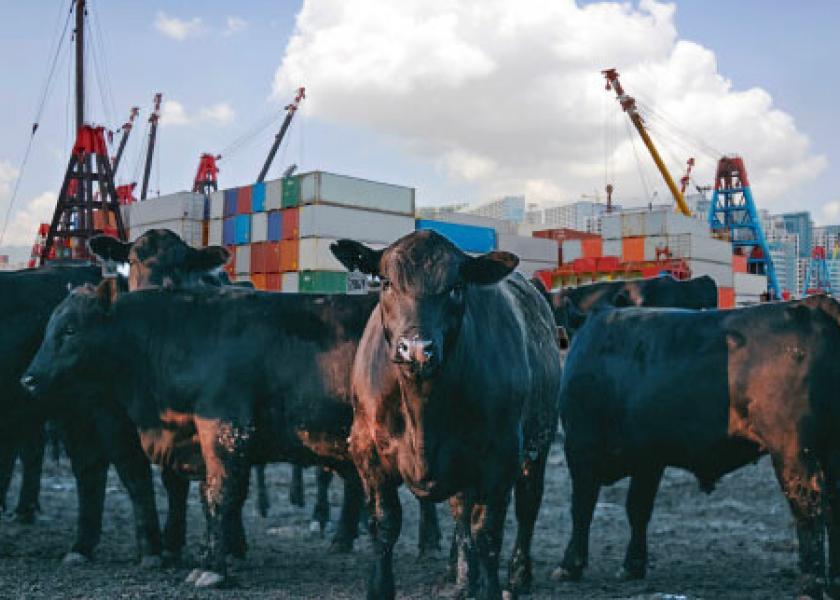U.S. and Japan Agree To Increase Beef Safeguard Trigger Level

U.S. and Japanese officials announced an agreement allowing American producers to meet Japan’s growing demand for U.S. beef while lowering the risk of Japan imposing higher tariffs in the future.
The agreement, announced Thursday by U.S. Trade Representative Katherine Tai and Secretary of Agriculture Tom Vilsack, includes a new mechanism that requires three separate conditions to be reached - instead of only one - for Japan to invoke a “safeguard trigger” and impose higher duties on U.S. beef for 30 days.
“This agreement is a great win for our two countries that ensures American farmers and ranchers can continue to meet Japan’s growing demand for high-quality U.S. beef,” U.S. Trade Representative Katherine Tai said in a statement.
The three triggers that must be reached for Japan to impose higher tariffs are:
- Imports from the United States must exceed the original beef safeguard trigger level under the U.S.-Japan Trade Agreement;
- The aggregate volume of beef imports from the United States and the original signatories of the Comprehensive and Progressive Agreement for Trans-Pacific Partnership (CPTPP) must exceed the CPTPP beef safeguard; and
- Imports from the United States must exceed the total amount of beef imports from the United States during the previous year.
“This is a positive development for America’s farmers and ranchers,” said Vilsack. “It allows for greater market-based growth in U.S. beef exports to Japan and reduces the probability of higher Japanese tariffs being imposed on U.S. goods.”
The U.S. and Japan signed a separate bilateral trade agreement in 2019 after the U.S. withdrew from negotiations of the CP-TPP in 2017.
Japan raised its “safeguard” duty on U.S. beef to 38.% from 25.8% in March of last year for 30 days after U.S. beef imports exceeded the 242,000 metric ton trigger.
“It has taken a year to find the right formula for this agreement,” U.S. Ambassador to Japan Rahm Emanuel said. “This is a win-win for American ranchers and Japanese consumers.”
In 2021, the United States was the top beef exporting country in the world, with global sales of beef and beef products valued at over $10 billion. Exports of U.S. beef to Japan totaled 320,ooo metric tons in 2021 with a value of almost $2.4 billion.
The new agreement between the U.S. and Japan was met with enthusiasm by American cattlemen and exporters.
The National Cattlemen’s Beef Association said it has “strongly supported” efforts to secure improvements to the beef safeguards.
“While the details of the agreement in principle have not been disclosed, NCBA is encouraged that today’s announcement means we are taking necessary steps to secure long-term solutions that enable American cattle producers to continue providing Japanese consumers with high-quality U.S. beef at competitive prices,” said Kent Bacus, NCBA Senior Director of International Trade and Market Access.
The U.S. Meat Export Federation said in a statement that the changes “reduce the potential impact of the safeguard and make it less disruptive for U.S. exporters and their customers in Japan."
Hughes Abell, president of the Texas & Southwestern Cattle Raisers Association, said Japan is consistently on the largest importers of U.S. and Texas beef and the agreement raises the prospect of more certainty for U.S. beef producers and Japanese consumers.
“Reducing tariffs and trade disruptions will further strengthen demand for U.S. beef and generate long-term benefit for cattle producers despite our current market challenges,” Abell said.







